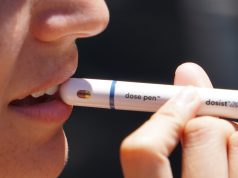Sunny Isles Beach took a stand for sea life recently by passing an ordinance banning balloon releases.
The ban makes it illegal to intentionally release any amount of balloons, with special allowances made for weather balloons, hot air balloons, and indoor releases.
“The intended policy here is to protect marine life, because the sea turtles could ingest these balloons,” said Dana Goldman, mayor of Sunny Isles Beach.
Balloon releases are done as a commemorative gesture for celebrations and memorials alike. Often release dozens of balloons at one time.
The plastic waste left over when the balloons pop is nothing to celebrate for wildlife. Sea turtles and birds mistake balloons for food and choke to death on them. They also become entangled in the strings, interfering with their movement and coming with a risk of strangulation.
A person’s first violation of the ban comes with a $100 fine, the second within two years with a $150 fine, and the third within three years with a $250 fine.
While the fines are intended to serve as a deterrent, ensuring the ban is enforced is no easy task.
“One of the conundrums that we always have is when you put an ordinance on the books, how are you going to enforce it?” said Goldman.
The fines depend on residents reporting the balloon releases, but the harm is already done by the time violators do so.
The ban isn’t the only step the city’s taken against balloon releases.
“Once these laws are enacted, the way to prevent it is to give some level of education,” Goldman said. “Prevention is really about education and awareness.”
The city’s “ECOMMITTED” campaign aims to inform residents of the its ongoing environmental initiatives, and how they can do their part. Other measures include bimonthly beach cleanups, solar powered phone charging benches, and a ban against polystyrene on city property.
Other cities have voted on similar balloon release bans. Hollywood prohibited them in 2020, and St. Augustine did so in 2021. In January, St. Johns County passed the first county ordinance against balloon releases.
Catherine Uden, South Florida field representative for ocean conservation group Oceana, says this is likely due to increased awareness of the practice.
“I would say that more education is out there now, and every time another city passes a law like this, it helps get the word out more,” Uden said. “Some municipalities have gone that extra step, and instead of just preventing balloon releases, prohibit balloons entirely.”
Despite action on the municipal level, state legislation is lacking.
A Florida statute has banned such releases since 1989; it specifically bans the release of ten balloons within 24 hours and imposes a $250 fine. The only changes to the bill have been updating the names of government offices and renumbering the statute.
There’s been some push to amend the law, but nothing has changed yet.
“We’re working on trying to update that state language,” Uden said. “Unfortunately, the efforts that we made this year did not happen during this legislative session. Obviously, we’ll try again next year.”
An ordinance against balloons on county land is currently under discussion in Broward County. And Hawaii and Virginia passed statewide bans against balloon releases last year.

































